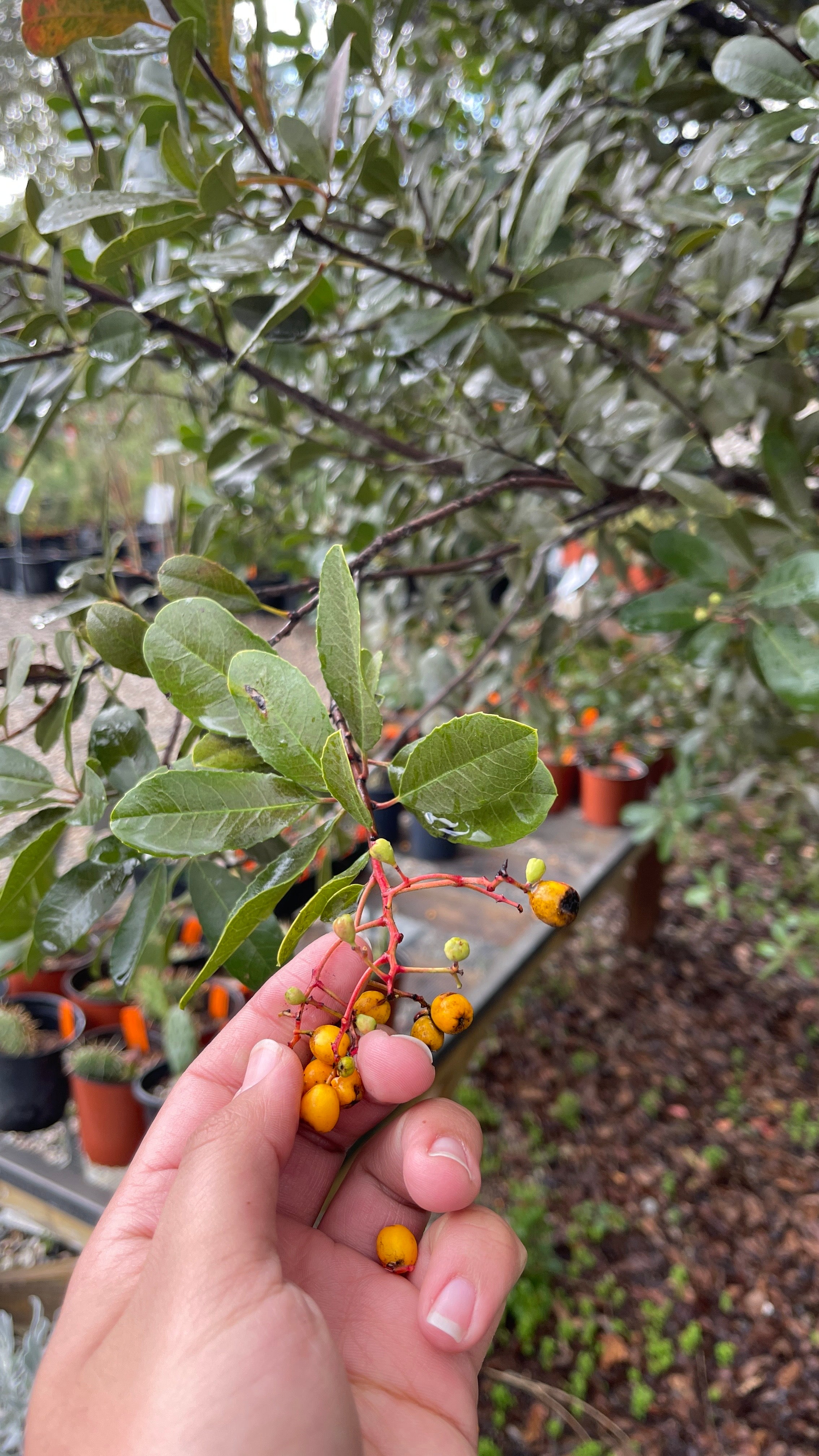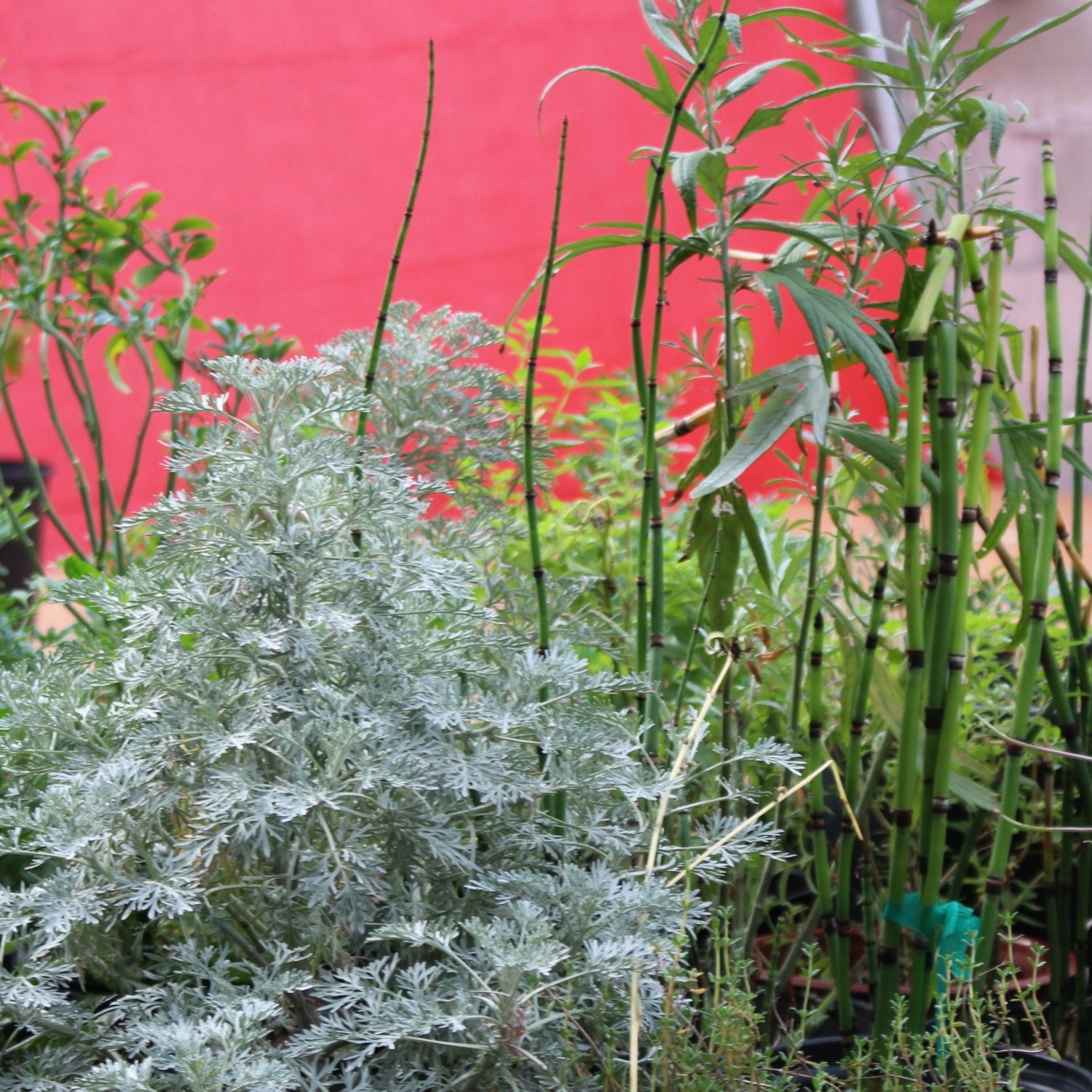Our Land Management and Gardening Expertise
Scorpio Gardens offers thoughtful land management and gardening services rooted in sustainability, food sovereignty, and environmental justice. With a focus on native plants, edible landscapes, and climate-resilient design, our work supports healthier ecosystems and stronger community relationships with land. Explore how our expertise in urban gardening, permaculture, and regenerative practices can help transform your space — whether it’s a home garden, community site, or business landscape.
Cultivating Justice through Sustainable Landscaping
At Scorpio Gardens, our mission goes far beyond creating beautiful landscapes. We are dedicated to promoting environmental stewardship, social equity, and climate resilience through sustainable gardening practices. Our commitment is deeply rooted in the belief that gardens have the power to transform not only outdoor spaces but also communities and the world we inhabit.
Through our diverse approach to sustainable landscaping, we embrace a range of gardening paradigms, each with its own unique contribution to environmental, social, and climate justice. These paradigms guide our work, shaping how we design, manage, and care for landscapes. Whether it's nurturing native ecosystems, fostering community connections through gardening, or promoting water-wise practices, we strive to create a more just and sustainable future for all.

Learn about our Gardening and Landscaping Paradigms
Our gardening approaches reflect our holistic approach to landscaping. Each principle represents a pathway to positive change, enabling us to address pressing environmental challenges, enhance social well-being, and build resilience in the face of climate uncertainty. Join us on a journey through these gardening approaches as we explore their significance, delve into their practices, and uncover the transformative potential they hold for our communities and the planet. Together, we can cultivate justice, one garden at a time.

Indoor Gardens
Indoor plants bring nature into living and working spaces. Beyond aesthetics, they enhance air quality and well-being. The use of indoor plants aligns with biophilic design principles and promotes healthier indoor environments. This is a great way to get connected to nature in a small way!
Execution: Selecting air-purifying plants, creating biophilic designs, and providing care guidance are essential. Indoor plants educate communities about indoor air quality and well-being.
Key Takeaways
- Improved Air Quality: Indoor plants remove toxins and enhance air quality.
- Biophilic Design: Incorporating nature into indoor spaces boosts well-being and productivity.
- Sustainable Living: Indoor plants promote sustainable and healthy indoor environments.
Our Approach: Indoor plants enhance well-being and air quality, a critical aspect of indoor environments. We educate on plant selection and care to promote biophilic design. Our approach supports social justice by enhancing indoor spaces for all, fostering healthier living, and reducing the environmental footprint of indoor spaces.

Native Plants and Ecosystems
Native Plants and Ecosystems focus on restoring and nurturing the indigenous flora and habitats of a specific region. These ecosystems have evolved over centuries and are perfectly adapted to local environmental conditions. By preserving native ecosystems, we not only support biodiversity but also restore balance to our environment.
Execution: This approach involves planting native species, removing invasive plants, and restoring natural water flow. It often requires educating communities about the value of local ecosystems.
Key Takeaways
- Biodiversity Conservation: Native plants attract local wildlife and help maintain healthy ecosystems.
- Water and Resource Conservation: Indigenous flora are adapted to local conditions, reducing the need for excessive watering and maintenance.
- Cultural Reconnection: Restoring native ecosystems can also revive cultural practices and traditions.
Our Approach: At Scorpio Gardens, we recognize that native plants and ecosystems are the foundation of ecological balance. By working with native species, we not only restore the natural beauty of the land but also support biodiversity, provide habitat for local wildlife, and conserve precious resources like water. This approach aligns with our commitment to environmental and social justice by preserving local heritage and fostering sustainable coexistence.

Herbal and Medicinal Gardens
Herbal and Medicinal Gardens recognize the incredible therapeutic potential of plants. It involves cultivating and utilizing botanicals for their healing properties. This approach promotes holistic well-being and makes healthcare more accessible.
Execution: Growing medicinal herbs, creating herbal remedies, and sharing knowledge about their usage are key aspects. Building community herbal gardens and offering educational programs further this cause.
Key Takeaways
- Alternative Healthcare: Herbal remedies offer natural alternatives to conventional medicine.
- Community Empowerment: Sharing herbal knowledge empowers communities to take control of their health.
- Cultural Preservation: Many traditional healing practices are deeply rooted in cultural heritage.
Our Approach: Our practice in herbal and medicinal plants is rooted in the belief that nature holds powerful remedies. We strive to empower individuals and communities with the knowledge of natural healing, addressing health disparities and promoting wellness for all. This approach intersects with environmental and social justice by promoting accessible healthcare options and preserving traditional healing practices.

Fruit and Vegetable Gardens
Fruit and Vegetable Gardens empower individuals and communities to grow their own food, reducing reliance on distant agricultural systems. These gardens enhance food security, promote healthier living, and strengthen local resilience.
Execution: Establishing organic gardens, practicing sustainable agriculture, and sharing knowledge about food production are key actions. Creating community and school gardens encourages broader participation.
Key Takeaways:
- Local Food Production: These gardens reduce food miles, supporting local economies and reducing environmental impact.
- Nutrient-Rich Harvests: Homegrown produce is often fresher and more nutritious, contributing to community health.
- Food Sovereignty: Community gardens enable communities to control their food sources, fostering independence.
Our Approach: We believe that growing one's food is an act of self-sufficiency and empowerment. Our expertise in vegetable and fruit gardens promotes food sovereignty and addresses food deserts, supporting equitable access to fresh produce. By encouraging organic practices, we contribute to environmental justice by reducing chemical pollution and supporting soil health.

Fire-Resilient Landscapes
Fire-Resilient Landscapes focus on preventing and mitigating wildfires in vulnerable regions. These spaces prioritize safety, education, and habitat protection.
Execution: Establishing firebreaks and defensible space, planting native fire-adapted species, and enhancing community preparedness are critical. These landscapes educate communities about wildfire risks and prevention.
Key Takeaways
- Wildfire Mitigation: Fire-resilient landscapes reduce the spread and intensity of wildfires.
- Habitat Protection: Protecting natural habitats is vital for local wildlife and ecosystems.
- Community Safety: Educating communities about fire risks enhances safety and preparedness.
Our Approach: In wildfire-prone regions, our training in fire-resilient landscapes focuses on prevention and preparedness. We prioritize safety, community education, and habitat protection, addressing the social and environmental implications of wildfires. Our approach supports climate resilience by mitigating fire risks and safeguarding ecosystems.

Edible Gardens
Edible Gardens encompass a range of practices, from food forests to permaculture. They emphasize sustainable food systems, local resilience, and regenerative agriculture.
Execution: Integrating food and ecological systems, adopting regenerative practices, and promoting community-driven initiatives are essential. These gardens educate communities about food production and sustainability.
Key Takeaways
- Sustainable Food Systems: Edible gardens prioritize organic, chemical free and community based practices.
- Community Resilience: These spaces foster self-sufficiency, reducing reliance on external food sources.
- Regenerative Agriculture: Edible gardens contribute to soil health and biodiversity, promoting a healthier environment.
Our Approach: Scorpio Gardens champions edible gardens as a means of reconnecting with our food sources. Our expertise extends to food forests, permaculture, and community gardening, emphasizing food justice and access. By sharing knowledge on sustainable food systems, we contribute to environmental and social justice by advocating for regenerative agriculture and local food resilience.

Community and School Gardens
Community and School Gardens serve as platforms for education, empowerment, and community building. They promote food justice, environmental awareness, and equitable access to fresh produce.
Execution: Creating inclusive spaces, offering educational programs, and fostering community cohesion are central. These gardens educate communities about food production and sustainability.
Key Takeaways
- Education and Empowerment: Community gardens educate and empower individuals and communities.
- Equitable Access: These spaces promote access to fresh produce and food justice.
- Community Building: Gardens foster community cohesion and strengthen social bonds.
Our Approach: Community and school gardens are platforms for education, empowerment, and community building. Scorpio Gardens' expertise includes creating inclusive spaces and educational programs that address food justice, community cohesion, and environmental awareness. Our approach champions equitable access to fresh produce and environmental education.

Food Forests
Food Forests represent a holistic approach to sustainable living. They combine fruit and nut trees, shrubs, herbs, and vegetables, fostering a diverse and self-sustaining ecosystem. These types of planting ensure year round harvest and growth.
Execution: Establishing multilayered planting systems, mimicking natural forests, and adopting low-maintenance and resilient practices are key. Food forests educate communities about regenerative agriculture and sustainable living.
Key Takeaways
- Ecosystem Resilience: Food forests promote biodiversity, resilience, and regenerative practices.
- Local Food Production: These systems yield a variety of foods, contributing to food sovereignty.
- Sustainable Living: Food forests offer a model for sustainable urban and suburban living.
Our Approach: Food forests represent a holistic approach to sustainable living. Scorpio Gardens promotes agroforestry practices that foster food sovereignty, reduce food miles, and enhance local resilience. By emphasizing community involvement and knowledge sharing, we advance environmental and social justice goals by strengthening local food systems.

Patio/Container Gardens
Patio/Container Gardens maximize small spaces for sustainable gardening. They make urban greenery accessible, promote urban agriculture, and reduce food deserts.
Execution: Space-efficient gardening, promoting urban greening, and enhancing access to fresh produce are key actions. These gardens educate communities about urban agriculture and sustainability.
Key Takeaways
- Urban Agriculture: Patio/container gardens enable urban residents to grow their own food.
- Greening Cities: Urban gardening contributes to healthier and more sustainable cities.
- Food Access: These gardens improve access to fresh produce in urban areas.
Our Approach: Patio/container gardens maximize small spaces for sustainable gardening. We emphasize accessibility and inclusive practices in container gardening, promoting urban greenery in every corner of the city. Our approach supports environmental justice by expanding green spaces in urban areas and making gardening accessible with limited space.

Cacti and Succulents
Cacti and Succulents thrive in arid regions, making them ideal for water-wise gardening. They are resilient, low-maintenance, and excellent choices for landscapes facing water scarcity.
Execution: Planting drought-resistant cacti and succulents, using well-draining soil, and promoting rainwater harvesting are key steps. Educating communities about the benefits of these plants is also vital.
Key Takeaways
- Water Conservation: These plants minimize water usage, contributing to sustainable landscapes.
- Climate Resilience: Cacti and succulents are adapted to extreme conditions, making them climate-resilient choices.
- Community Sustainability: Promoting water-wise gardening helps conserve precious resources.
Our Approach: Scorpio Gardens embraces the beauty and resilience of arid landscapes. Our use of cacti and succulents reflects our dedication to water-wise gardening, a vital practice in regions facing water scarcity due to climate change. By sharing this knowledge, we contribute to environmental justice by conserving water resources and cultivating climate-resilient landscapes.

Permaculture
Permaculture is a comprehensive design system rooted in ethics and principles. It integrates sustainable agriculture, regenerative practices, and community resilience.
Execution: Implementing ethical decision-making, mimicking natural ecosystems, and adopting regenerative design are central to permaculture. It promotes community resilience and sustainability education.
Key Takeaways
- Ethical Design: Permaculture prioritizes ethics and sustainability in every aspect of life.
- Ecosystem Mimicry: Designing systems that mimic nature fosters resilience and biodiversity.
- Community Resilience: Permaculture promotes community self-sufficiency and sustainability.
Our Approach: Permaculture principles guide our commitment to regenerative living. We integrate ecological design, sustainable agriculture, and community resilience into our work. By advocating for ethical decision-making and regenerative practices, we promote environmental and social justice while addressing climate challenges.
